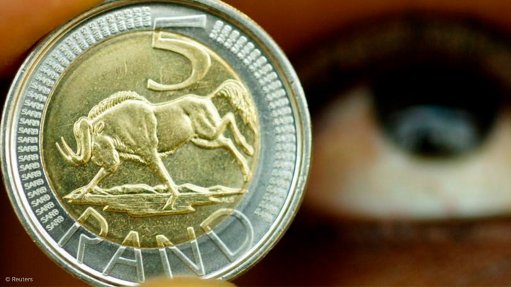WEF issues challenge for solutions to protect Western Indian Ocean
The World Economic Forum's (WEF's) open-innovation platform Uplink has issued a challenge, calling for innovators, startups and blue guardians to submit conservation plans to protect the Western Indian Ocean.
This innovation challenge represents a roadmap for protecting and restoring, by 2030, at least two-million square kilometres, or about 30%, of critical ecosystems in this region.
The African-led challenge aims to establish a novel network of seascapes that will benefit both people and nature. These seascapes will create a ‘great blue wall’ of effectively conserved marine ecosystems that deliver socioeconomic and conservation outcomes, shelter communities from adverse climate change impacts and help biodiversity to recover.
“The overarching goal of the initiative and the supporting challenge is to dramatically accelerate and upscale ocean conservation actions, while enhancing socio-ecological resilience and developing a regenerative blue economy. The latter has huge potential to contribute to sustainable development and the reduction of social inequalities in the Western Indian Ocean region,” said WEF director and Friends of Ocean Action head Kristian Teleki.
“There is a great and urgent need to identify and support innovative approaches to seascape conservation and restoration in this region. We need new, scalable and ocean-friendly solutions to help protect and restore marine biodiversity,” he said.
As such, the Great Blue Wall Challenge promotes concrete, and future- and results-oriented action that contributes to the resilience of people and the environment amid climate change.
“Western Indian Ocean countries have an inspirational vision to protect and restore some of the most biodiverse seascapes in the world, while leveraging the tremendous untapped potential of a sustainable blue economy to support these efforts,” noted Teleki.
“The private sector and innovation will play an essential role in bringing the Great Blue Wall to life by creating new business models that derive value from ecosystems without damaging them, and by offering new opportunities for employment and community development. The WEF looks forward to identifying and scaling innovations that can help realise the Great Blue Wall,” he highlighted.
For centuries, the region encompassing the western part of the Indian Ocean has provided livelihoods and opportunities for trade and marine resource use. Some 70-million people, more than one-quarter of the region’s population, live within 100 km of the shoreline. The importance of this region to both people and the planet cannot be overstated.
Further, the region is home to 38% of the world’s coral reef species, a multitude of diverse ecosystems, and thousands of marine species, many of which are endemic. Its shores and coastal waters are recognised globally for their biological richness, natural beauty, and high socio-economic and ecological value.
However, experts say there is cause for serious concern. All coral reefs in this region are at high risk of collapsing within the next 50 years if nothing is done to mitigate the twin dangers of climate change and the current rate of biodiversity loss. Already, these threats are causing reductions in ecosystem services that humans benefit from, such as climate regulation, and in the ability of marine ecosystems to support human communities.
“The region is also under pressure from overfishing, pollution and extractive industries. This means natural capital is being eroded, undermining the ocean’s value for present and future generations. Despite this, only 8% of this ocean is formally protected and only a small portion is effectively conserved,” explained Teleki.
INNOVATION CHALLENGE
The organisers of the innovation challenge are looking for solutions aligning with the Great Blue Wall Initiative. This Great Blue Wall Initiative, which was announced in March this year, is a global call for startups and social enterprises that are using nature-positive innovations to improve the region’s sustainability and the resilience of its people and ecosystems.
It is led by Western Indian Ocean countries with the support of the International Union for Conservation of Nature (IUCN) and a coalition of partners. The countries involved include Comoros, Kenya, Madagascar, Mauritius, Mozambique, Seychelles, South Africa and Tanzania.
The partners driving the Great Blue Wall Challenge are looking for innovations that promote the sustainable and equitable use of ocean resources, focus on value chain development and diversify ocean use in this region.
Innovations submitted must be beyond the ideation or prototype phase, with a clear measure of their impact and scale. The partners are interested in solutions that demonstrate the potential to be scaled up, given the urgency of the challenges involved.
Additionally, in making their selection, the partners will consider the geographic location, type, stage and scale of the innovations.
“Solutions must focus on one or more of the topics, namely seascape conservation and restoration, to protect or restore ecosystems, the sustainable and equitable use of ocean resources, including value chain development, or supporting activities, such as financial technology to enable conservation or other ocean-positive activities.
“Additional topics include the protection and restoration of blue carbon ecosystems, including certified carbon projects, and dealing with the different waste types that affect marine environments in this region, excluding plastic pollution,” the organisers explained.
Interested parties are invited to submit their innovations on UpLink’s online platform. Solutions must be submitted by April 24, after which the review and selection will take place.
Submissions will be assessed against criteria such as the environmental and socio-economic impact of the solutions offered, the governance and operating models followed, the financial viability of the business model employed, the innovation’s traction among other organisations and partners, and the monitoring and evaluation frameworks put in place.
Priority will also be given to for-profit startups or social enterprises with a sustainable funding model. Nongovernmental organisations with a clearly defined revenue-generating project may also be considered.
Further, to help advance the impact of their innovations, the creators of the best submissions will be recognised as ‘Top Innovators’ and invited to join the UpLink Innovation Network Programme, facilitated by Friends of Ocean Action and the WEF and its partners.
The winners of this challenge will be announced on World Ocean Day on June 8, and later be featured at the Africa Climate Action Summit and the 2023 United Nations Climate Change Conference COP28.
Article Enquiry
Email Article
Save Article
Feedback
To advertise email advertising@creamermedia.co.za or click here
Announcements
What's On
Subscribe to improve your user experience...
Option 1 (equivalent of R125 a month):
Receive a weekly copy of Creamer Media's Engineering News & Mining Weekly magazine
(print copy for those in South Africa and e-magazine for those outside of South Africa)
Receive daily email newsletters
Access to full search results
Access archive of magazine back copies
Access to Projects in Progress
Access to ONE Research Report of your choice in PDF format
Option 2 (equivalent of R375 a month):
All benefits from Option 1
PLUS
Access to Creamer Media's Research Channel Africa for ALL Research Reports, in PDF format, on various industrial and mining sectors
including Electricity; Water; Energy Transition; Hydrogen; Roads, Rail and Ports; Coal; Gold; Platinum; Battery Metals; etc.
Already a subscriber?
Forgotten your password?
Receive weekly copy of Creamer Media's Engineering News & Mining Weekly magazine (print copy for those in South Africa and e-magazine for those outside of South Africa)
➕
Recieve daily email newsletters
➕
Access to full search results
➕
Access archive of magazine back copies
➕
Access to Projects in Progress
➕
Access to ONE Research Report of your choice in PDF format
RESEARCH CHANNEL AFRICA
R4500 (equivalent of R375 a month)
SUBSCRIBEAll benefits from Option 1
➕
Access to Creamer Media's Research Channel Africa for ALL Research Reports on various industrial and mining sectors, in PDF format, including on:
Electricity
➕
Water
➕
Energy Transition
➕
Hydrogen
➕
Roads, Rail and Ports
➕
Coal
➕
Gold
➕
Platinum
➕
Battery Metals
➕
etc.
Receive all benefits from Option 1 or Option 2 delivered to numerous people at your company
➕
Multiple User names and Passwords for simultaneous log-ins
➕
Intranet integration access to all in your organisation


















